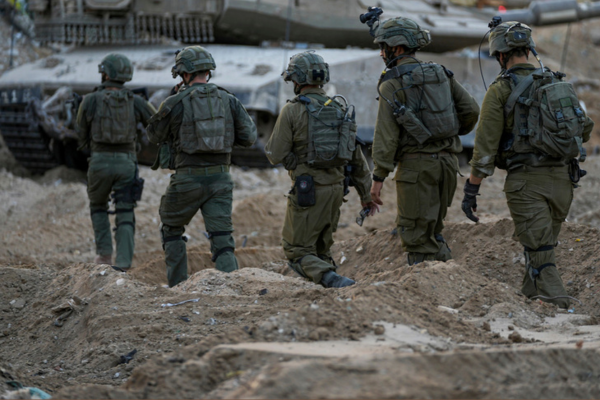Israeli journalists come under scrutiny as media practices and coverage during the Gaza war spark debate over the portrayal of suffering on both sides.
By Rachel O’Donoghue,Honest Reporting
The Guardian‘s sister weekly newspaper, The Observer, recently published a feature that took aim at Israeli journalists.
Headlined, “‘Journalists see their role as helping to win’: how Israeli TV is covering Gaza war,” the piece by Emma Graham-Harrison and Quique Kierszenbaum describes how the Israeli media have worked to present a “uniformly patriotic vision of reality” since Hamas attacked Israel:
A ‘united we will win’ slogan sits on the screen for most TV news and talk shows. Politicians face heavy criticism, but interrogations of the military, its strategies, its generals and ordinary troops are muted.
The suffering of Gazan civilians barely features, veteran journalists say, three months into an Israeli offensive that has killed more than 22,000 people, displaced nearly 2 million, and left nearly half the population on the brink of famine and stalked by disease.”
The message to Israeli journalists, Graham-Harrison and Kierszenbaum contend, is clear: “If you don’t have something unifying to say, just shut your mouth.”
It is bizarre criticism to fling at Israel’s media; echoing a similarly distasteful analysis by the BBC’s security correspondent Jeremy Bowen, who criticized Israeli news channels for focusing too much on the country’s trauma following the October 7 attacks and not enough on Palestinian suffering.
Like Bowen, the point that Graham-Harrison and Kierszenbaum have missed in this latest condemnation of the Israeli press is that it is not unusual for any country, including its media, to rally together at a time of war, especially when it is facing an existential battle for survival.
As we previously noted, when the war is finished and the nation has mourned its fallen soldiers, the Israeli media will analyze how the war was conducted, which will include examining military tactics and whether Palestinian (as well as Israeli) casualties could have been avoided.
The piece goes on to acknowledge what has been described as the “disconnection” that Israelis feel over their pain and trauma at the October 7 atrocities being ignored:
Former national security adviser Eyal Hulata has described a ‘dome of disconnection’ created by the trauma of 7 October, with Israelis isolated inside, separated from a world that does not understand their pain, and their fear that Hamas might return.
The disconnection goes both ways though, critics say. Israelis feel that their agony in the wake of mass murder and kidnapping is ignored, but Israeli media presents its audience with a reality in which Palestinian suffering barely exists.”
But again, what critics of Israel have utterly failed to grasp is that this disconnection doesn’t go both ways at all.
Indeed, the “both ways” argument would only hold water if, since October 7, Palestinian media outlets had been airing footage of the Hamas atrocities while showing the suffering of Israelis who lost family members and whose relatives are being held hostage.
It is a strange world in which the Israeli press is chastised for not showing Palestinian suffering in enough detail, while little is said about the fact that the Palestinian news media actually celebrated the October 7 massacre.
The piece ends with some comments from Meron Rapoport, a journalist at anti-Israel outfit +972 Magazine, who claims the “dehumanising of Gaza’s civilians” is a result of a “long disengagement from covering Palestinian lives.”
In the next paragraph, Graham-Harrison and Kierszenbaum hint this trend may continue by observing that “commentators on Arab affairs are all Jewish Israeli, and while Israeli media correspondents are posted in New York and London, there have never been regular positions in Ramallah or Gaza…”
That’s right, there haven’t ever been regular positions for Israeli journalists in Ramallah or Gaza. But having seen what Hamas does to Israelis when given the chance, is it any surprise Israeli journalists aren’t reporting live from the Strip?
Israel at War with Hamas. Support Israel Today!
The people of Israel need your help at this most critical time. Please make a donation to help protect and defend Israelis against unprecedented Hamas terror.
Rockets are falling. Sirens blare, with seconds to run for cover. IDF soldiers risk their lives battling terrorists inside Gaza. Thousands forced to abandon their homes in southern Israel.
To fight terror and save lives, UWI provides bomb shelters, anti-terror vehicles, protective gear, security equipment, medical assistance, relief to victims and much more. Help Israel fight and win this war against Hamas. The time to act is now!
